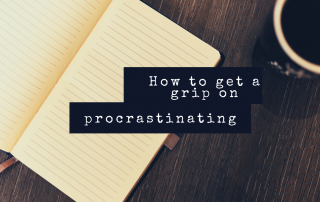Let’s take a look at what avoidance is:
Avoidance is a type of behaviour that helps us deal with uncomfortable or scary situations. While it’s mostly observed in Social Anxiety sufferers, this type of behaviour is also common in Health Anxiety, GAD, OCD and many more types of Anxiety.
Let’s look at the avoidance example in ‘Presentation Anxiety’ (falling under ‘Social Anxiety’ umbrella):
Trigger Situation:
Work Presentation
Thoughts:
‘I can’t do it.’
‘Everyone will see how incompetent I am.’
Feelings:
Terrified.
Angry.
Incompetent.
Tearful.
Physical Symptoms:
Lack of sleep.
Nausea.
Throwing up.
Headache.
Resulting Behaviour:
AVOID COMING TO WORK THAT DAY OR MAKE UP A STORY ABOUT FEELING UNWELL | DELEGATE THE PRESENTATION TASK TO SOMEONE ELSE.
This will result it:
Feeling temporary relief.
ANXIETY FEARS WERE NOT CHALLENGED & SYMPTOMS GET WORSE.
realization you need help.
Let’s take a look at situations you may be avoiding:
Why is avoidance a problem?
Even though avoiding situations we fear gives us temporary relief, in the long term, it keeps us ‘stuck’ in the vicious Anxiety cycle. The more we avoid, the more we confirm our fears are ‘real’. But are they?
If we never test out our negative predictions (‘If I go on that date, she will see just how ridiculous I am. She’ll never call me again, so what’s the point in going?’) then we never find out if the worst-case scenario is true.
By giving ourselves the opportunity to be curious about the outcome (‘yes, I know I’m expecting this, but what if it goes better than I think?’), we may find that our thinking wasn’t exactly correct, and learn from it.
We need to break the cycle of avoidance to truly experience the positives in life, and live fulfilling lives.
We need to implement small steps towards standing up to the fear we feel about situations.
Yes, we will feel increased anxiety and discomfort in the short term; but in the long term, our new approach to situations will give us valuable feedback and information on which to build our future approach.
Further articles you may like:
1606, 2023
708, 2022
1707, 2022
Anxiety And Procrastination At Work
Can Anxiety cause Procrastination? Absolutely. Anxiety and Low Mood can both result in Procrastination at work. In this article, I'm going to take a closer look at what Procrastination is, and how to help yourself if you struggle with Anxiety AND procrastination. Let's start with Procrastination: First of all, people mistake procrastination
2606, 2022
405, 2022
Assertiveness Mastery: 9 Effective Steps to Improve Assertiveness Skills and Boost Self-Confidence
In today's fast-paced world, mastering assertiveness skills has become an essential tool for personal and professional growth. It's not just about being confident; it's about communicating your needs and respecting others in a balanced and healthy way. I've recently launched a new book, 'Building Assertive Mindset: A Guide to
1204, 2022



